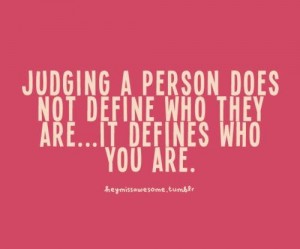What's Happening [06.13.13]
The "What's Happening?" Blog is a weekly round up of the all the ADR news, jobs, events and more. Check it out each week and view past news [HERE]
Cultural influences in Family Conflict: Family Mediation on a Multi...
Maureen Dabbagh - Interfaith conflict resolution is a small component within the many complex areas of multicultural disputes including international family mediation. Training for interfaith conflict resolution is often found in peace building efforts, but almost unheard of in family mediation. There exists a great need for interfaith conflict resolution training for family mediators, especially those inserting themselves into international child custody disputes and international family mediation. The greater the difference in parental cultures; the greater the risk for a child to be abducted.
Read more from this month's webinar presenter [HERE].
Four Obstacles to Learning from Negotiation Simulations

Your Judgment May be Impairing You
Lee Jay Berman- Judgment is a tool that actually impairs a mediator. While it’s human nature to judge people as dangerous or not, the notion of good or bad is one that only makes us feel superior in our ability to pass judgment on them. As the quote says, it does nothing for us.
As mediators, listing to people tell their stories, the trained human response is to decide which story we believe, or which seems right, or more credible.
Role of an Organizational Ombudsman with Dr. Belinda Newman [Conflict Specialists Show]
Dave Hilton- In this 21st Episode of the Conflict Specialists Show, Dave Hilton interviews Dr. Belinda Newman, Ombudsman for the University of North Texas.
Some of the topics in today’s episode:
- Types of Ombuds
- International Ombudsman Association Standards of Practice and Code of Ethics
- "Ombudsman" vs "Ombuds"
- Ombudsman Data Reporting
- Getting a Job as an Ombudsman
- and more
Back To School Planning – How to Equip Your Child with the Strength...
Cinnie Noble- The derivation of the expression “Achilles’ heel” dates back to an ancient legend. The story goes that Achilles’ mother Thetis dipped him into the river Styx to make him invulnerable. One of his heels was not covered by the water though, and as a consequence he was later killed by an arrow wound to the heel that was exposed. The expression – Achilles’ heel – is used till this day as a metaphor for vulnerability.
We all have vulnerabilities and they often become exposed when we are in conflict. If another person knows our areas of vulnerability she or he may precipitate conflict by purposely wounding our Achilles’ heel. Sometimes, of course, there is no intent such that our Achilles’ heel may be struck inadvertently too. As with other times people intentionally or not intentionally trigger us with something they say or do – or do not say or do – it helps to reflect on what is happening before responding.
About
@ADRHub Tweets
© 2025 Created by ADRhub.com - Creighton NCR.
Powered by
![]()


You need to be a member of ADRhub - Creighton NCR to add comments!
Join ADRhub - Creighton NCR